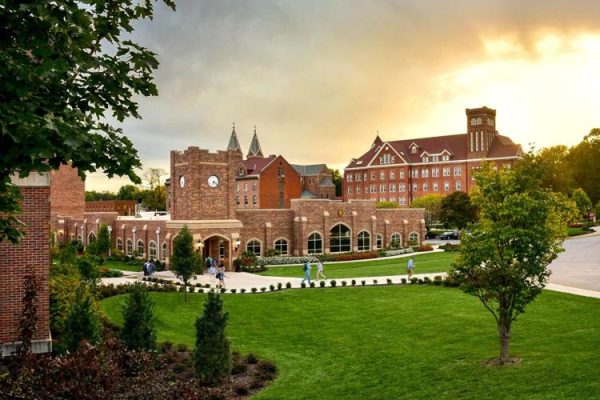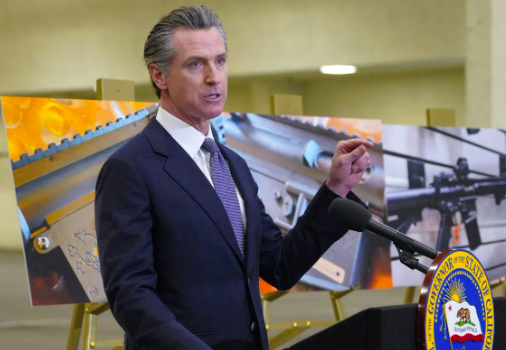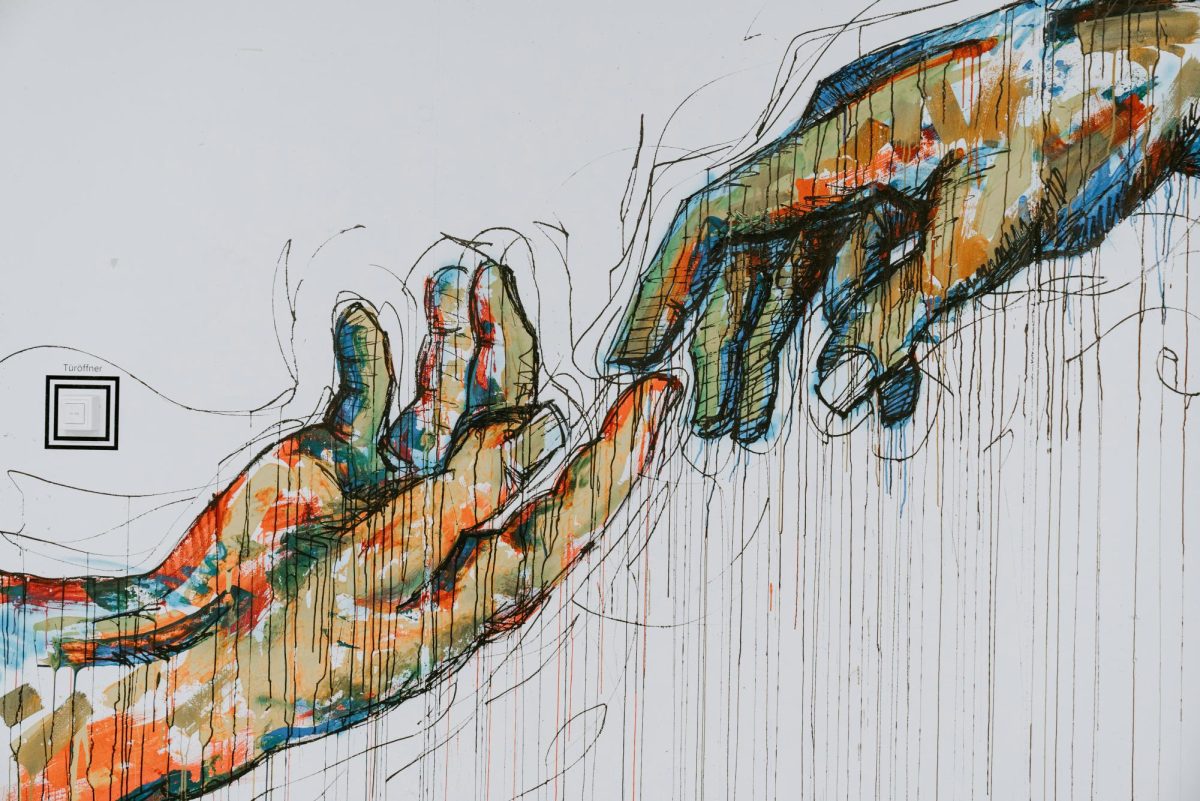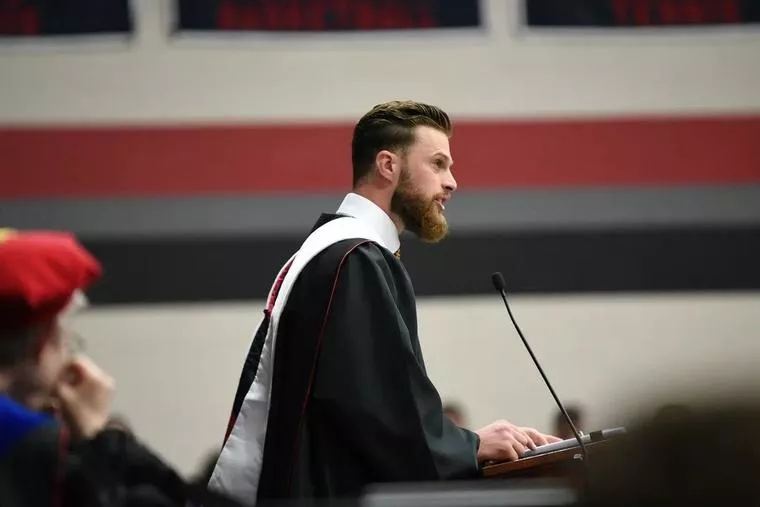On the 11th of May in 2024, Harrison Butker, the kicker for the Kansas City Chiefs, shared a Commencement Address for the graduates at Benedictine College, a Catholic liberal arts college in Atchison, Kansas. The media quickly picked up the address and clips of Butker’s speech were everywhere.
Butker made statements about diversity, women’s rights, COVID-19, the LGBTQ+ community, and the current governing body of the United States.
Early in his speech, Butker states, “While COVID might have played a large role throughout your formative years, it is not unique. Bad policies and poor leadership have negatively impacted major life issues.” This very quickly set the tone for the rest of his speech. Butker states that the students who are currently graduating have been affected by the pandemic and by extension of that, poor leadership. This is true. The current graduating college students of 2024 were graduating high school in 2020. The majority of them missed out on Prom, walking across the stage for graduation, and other major events that are part of senior year.
The next point Butker makes comes immediately after the previous statement. He states, “Things like abortion, IVF, surrogacy, euthanasia, as well as a growing support for degenerate cultural values in media, all stem from the pervasiveness of disorder.” This statement seeming comes completely out of the left field. However, these are issues that Butker and devout Catholics are fighting against.
Some Catholics believe that a life is created at the moment of conception, Butker is one of these Catholics. There is a verse in the bible, Jeremiah 1:5, which states, “Before I formed you in the womb I knew you, and before you were born I consecrated you; I appointed you a prophet to the nations.” While this doesn’t justify Butker’s bold claim, it does explain why he would say that.
The Catholic Church is against In Vitro Fertilization (IVF) and surrogacy because in both multiple eggs are fertilized and then are either frozen or discarded. Due to them already being fertilized the church recognizes these as a life form, so discarding them is seen as murder.
Euthanasia is defined as the practice of intentionally ending life to eliminate pain and suffering. It is essentially assisted suicide. The Catholic church believes that suicide contradicts the natural inclination of the human being to preserve and perpetuate his life. The Vatican sees suicide as morally unacceptable and disrespectful to God’s gift of life.
Butker continues by stating, “Our nation is led by a man who publicly and proudly proclaims his Catholic faith, but at the same time is delusional enough to make the Sign of the Cross during a pro-abortion rally.” As the Catholic church is widely known to be pro-life, it makes sense why a person who is a devout catholic would be confused as to why another supposed catholic is supporting something that they have been told is wrong.
Butker goes on to say, “From the man behind the COVID lockdowns to the people pushing dangerous gender ideologies onto the youth of America, they all have a glaring thing in common. They are Catholic. This is an important reminder that being Catholic alone doesn’t cut it.” The overall message is a caution against assuming that someone’s religious identity automatically aligns with certain moral or ethical standards. It is a reminder to evaluate individuals based on their actions and the content of their beliefs, rather than relying solely on their religious label. Butker is pointing out that to be a Catholic you have to not only believe but act on what you believe.
This is Butker’s call to action for all Catholics hearing his message. In his eyes, people who claim to be catholic are not standing up for their beliefs and doing what they should know as morally just. He even goes on to say, “We need to stop pretending that the “Church of Nice” is a winning proposition. We must always speak and act in charity, but never mistake charity for cowardice.”
The ‘Church of Nice’ is a critical term referring to a perception that the Church is overly focused on being pleasant and agreeable, at the expense of addressing important moral and social issues. Butker argues that this approach is not effective or beneficial.
Butker warns against confusing being charitable with being cowardly; in other words, avoiding tough issues or failing to speak the truth out of fear of conflict or desire to maintain harmony is seen as cowardice. However, he doesn’t want people to be overly nice to the point of letting others walk over them.
Not only does Butker see an issue in the Catholic and non-religious society, but with the religious leaders in the church. He states, “But make no mistake, before we even attempt to fix any of the issues plaguing society, we must first get our own house in order, and it starts with our leaders.” Many Catholic leaders have been exposed for going against their teachings and Butker believes that to ‘fix’ society the church needs to better themselves.
Butker continues to speak on how the church is not living how God intends for them to live. He says that priests are ordained to serve and should not act against the teachings of the Bible. He states that according to Saint Josemaría, a Spanish Roman Catholic priest, priests should not be seen as just another man but as what God wishes man to be.
Following this points out how many priests follow their greed for fame. He states, “Tragically, so many priests revolve much of their happiness from the adulation they receive from their parishioners, and in searching for this, they let their guard down and become overly familiar.” This is a critique of priests who seek validation and happiness from the approval of their congregants. This pursuit of adulation can lead them to relax their professional boundaries, potentially resulting in inappropriate familiarity and a failure to uphold the standards expected of their position. Butker implies that such behavior is detrimental to their spiritual duties and responsibilities.
In the wake of this he makes a joke involving Taylor Swift, “This undue familiarity will prove to be problematic every time because as my teammate’s girlfriend says, familiarity breeds contempt.” This line “familiarity breeds contempt,” comes from Swift’s song Bejeweled. However, Swift was not the creator of this iconic phrase. The English writer Geoffrey Chaucer was the first to use this expression in the 1300s. It is used to say that if you know someone very well you stop respecting them because you have seen all of their bad qualities.
Later in the speech, Butker is speaking on how priests are not standing up for the beliefs of the church, to avoid the church being shut down. He states, “Our bishops are not politicians but shepherds, so instead of fitting in the world by going along to get along, they too need to stay in their lane and lead.” Butker believes that priests are becoming too complacent in their teachings. In his eyes, the church leaders are not speaking on what needs to be said because they are scared of being canceled or removed from their jobs.

Butker holds Benedictine College as a shining example of how adherence to traditional Catholic values can lead to significant and multifaceted success. It serves as a call to look to such examples for guidance in times of confusion, suggesting that a return to tradition can provide clarity and achievement.
He goes on to call out the Associated Press (AP) for attempting to embarrass the people of Benedictine. Butker implies that there was an article meant to criticize or shame Benedictine College and its community. However, rather than the expected negative reaction the AP was met with a positive response from the college community.
He states that the community was filled with pride in this article and then states, “Not the deadly sin sort of pride that has an entire month dedicated to it, but the true God-centered pride that is cooperating with the Holy Ghost to glorify him.” This alludes to Pride Month, a month dedicated to celebrating the LGBTQ+ community. The Catholic church and most Christian denominations are very vocal in their condemnation of same-sex marriage.
They believe it to be a sin and their belief is backed by the Bible. “You shall not lie with a male as with a woman; it is an abomination.” (Leviticus 18:22) However, just because they believe it to be a sin does not mean people who are a part of the LGBTQ+ community are not welcome in the church. First Peter, chapter 4, verse 8 says, “Above all, love each other deeply because love covers over a multitude of sins.” Unfortunately, not everyone in the church follows this. Many members of Christian churches will have a prodigious against another person simply because of who they love. This leads members of the LGBTQ+ community to feel ostracized from the church, causing distrust and hate from both sides.
Towards the end of Butkers speech, he touches on what he thinks a woman’s role is. He states:
“For the ladies present today, congratulations on an amazing accomplishment. You should be proud of all that you have achieved to this point in your young lives. I want to speak directly to you briefly because I think it is you, the women, who have had the most diabolical lies told to you. How many of you are sitting here now about to cross this stage and are thinking about all the promotions and titles you are going to get in your career? Some of you may go on to lead successful careers in the world, but I would venture to guess that the majority of you are most excited about your marriage and the children you will bring into this world.”
Starting with the first sentence Butker congratulates the women on their achievements, acknowledging their hard work and success. He then reinforces the recognition of their accomplishments and encourages them to take pride in their efforts and successes. Then shifts focus to address the women specifically, suggesting that they have been particularly targeted by “diabolical lies”. He then poses a rhetorical question, acknowledging that many of the women may be thinking about their future professional achievements. Butker acknowledges that some women will indeed pursue and achieve professional success. Finally, he states that, despite career aspirations, he believes many of the graduating women are primarily excited about traditional roles of marriage and motherhood.
Butker goes on to tell the story of how he met his wife. He shares that they met in middle school and later in life, she converted just before they got married. He then says that she “embraces one of the most important titles of all: homemaker.” Butker believes that his wife, Isabelle’s true role in life is to be a mother and wife.
He also goes on to say, “Isabelle’s dream of having a career might not have come true, but if you ask her today if she has any regrets on her decision, she would laugh out loud without hesitation, and say, ‘Heck, no.’” In this, he alludes to the fact that Isabelle had a dream of having a career but was stopped by himself so she could raise his children. As it turns out Isabelle went to Rhodes College in Tennessee and played women’s basketball while there.
Butker believes that it is wrong for women to put more importance on having a successful career rather than raising a family.
Directly after this dedication to the women graduates, Butker speaks to the men graduating. He states:
“To the gentlemen here today: Part of what plagues our society is this lie that has been told to you that men are not necessary in the home or in our communities. As men, we set the tone of the culture, and when that is absent, disorder, dysfunction, and chaos set in. This absence of men in the home is what plays a large role in the violence we see all around the nation. Other countries do not have nearly the same absentee father rates as we find here in the U.S., and a correlation could be made in their drastically lower violence rates, as well.”
Butker speaks on the importance of men’s involvement in their families and communities. He argues that men play a critical role in setting cultural standards and maintaining order and that their absence contributes significantly to societal problems, particularly violence. By drawing comparisons with other countries, he suggests that greater male involvement in the home could lead to reduced violence and improved societal outcomes.
In his closing words, Butker states, “Make no mistake: You are entering into mission territory in a post-God world, but you were made for this. And with God by your side and a constant striving for virtue within your vocation, you too can be a saint.” The intention is to motivate the graduates to recognize the secular challenges they will face and to embrace their mission with confidence, faith, and a commitment to virtue. It reassures them that they are well-suited for this challenge and can achieve greatness, even sainthood, by maintaining a close relationship with God and striving to live virtuously.
Harrison Butker’s commencement address at Benedictine College was a powerful and controversial message that challenged the graduates to hold fast to their faith and values. Throughout his speech, Butker tackled significant societal issues and emphasized the importance of aligning actions with beliefs, particularly within the Catholic community. His address urged the graduates to confront the moral and ethical challenges of today’s world with courage and conviction, reminding them of their potential to effect positive change.
Butker’s call to action was clear: to live authentically according to their faith, to seek truth, and to strive for virtue in all aspects of life. His words served as a reminder that the journey ahead will be fraught with difficulties, but with faith and perseverance, they can navigate these challenges and make meaningful contributions to society.






































